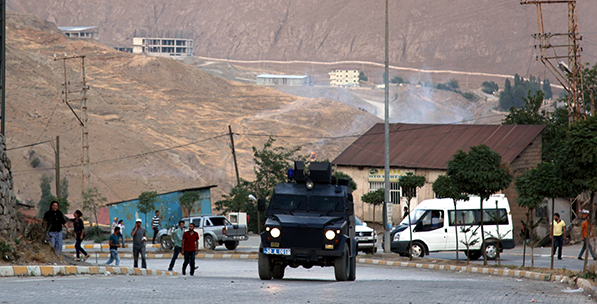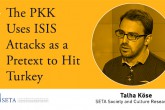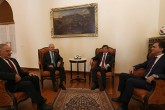The terror attacks by the PKK in Turkey have brought with them some very serious questions. The majority of those who were saying prior to the June 7 elections that the Peoples’ Democratic Party (HDP) needed to get into Parliament by surpassing the 10-percent national election threshold were basing their argument on the fact that if this were to happen, the armed Kurdish movement would lose legitimacy and its place in the civilian arena would then be filled by this political actor. Hypotheses along the lines that if the HDP were to enter Parliament, the PKK would disarm and retreat from Turkey were offered. However, the developments have been the complete opposite. Why did this happen?
After the HDP entered Parliament, the PKK reneged on the cease-fire agreement it had for the past two-and-a-half years and announced that it was beginning a “revolutionary people’s war” against the Turkish government. From that day until now the PKK has murdered 37 security personnel and 12 civilians. In this period, the PKK has engaged in many activities with the intent to disrupt daily life. The most attention-grabbing among these was that of setting fire to vehicles. Until now, 119 vehicles, most of them trucks, have been burned.
Some commentators are of the opinion that the PKK engaging in armed activities after the June 7 elections is an effect of the HDP’s political success. In other words, the fact that the HDP entered Parliament with a higher vote count than expected has caused the PKK to take up arms as opposed to laying them down. According to these commentators, within the radical nationalist Kurdish movement, the enlargement of the civilian side of politics made Kurdish nationalists uncomfortable and the atmosphere of conflict that is currently occupying Turkey came about. According to the point of view of those who say this, the Suruç massacre committed by an Islamic State of Iraq and al-Sham (ISIS) suicide bomber was used as an excuse by the PKK and once again, the PKK began its armed struggle against the state.
Although this view does not fully describe reality, there is a point at which it connects with reality, and that is the fact that the Turkey-centered radical nationalist Kurdish movement under the monopoly of the PKK did not approach the reconciliation process that had been going on for the past two-and-a-half years in a homogenous manner. One part of this movement believed that armed struggle against the government had used up its usefulness and that it was necessary to sit down at the negotiating table. Another wing thought that armed forces and armed struggle should be kept as a backup. The division of opinion between these two wings emerged in front of us in different ways while the reconciliation process was ongoing. For example, in March 2013, 2014, and 2015, while on one hand, the imprisoned PKK leader Abdullah Öcalan’s letters calling for peace were read and calls were made for the PKK to disarm, which were supported by various communities. On the other, announcements that the PKK would not disarm were forthcoming with various conditions being brought to the government with the threat that if these conditions were not met, there would be an immediate recommencing of armed struggle. This un-named struggle came in front of us while the reconciliation process was carrying on.
The main element motivating the militaristic wing was the perception related to the idea that Kurds have a historic opportunity. We can talk about the presence of four elements that feed into this perception of the militarist wing within the Turkey-centered radical Kurdish nationalists.
l The Democratic Union Party (PYD), the PKK’s Syrian affiliate, declaring its own cantons in Rojava, and the beginning of the influence of the Rojava revolution romanticism on the nationalist Kurds in Turkey.
The People’s Protection Units (YPG), the PYD’s armed wing, acting as the U.S.’s land force in the struggle against ISIS in Syria and the thought that the Americans view the PKK and its constituent
In this article
- Domestic Policy
- Opinion
- 2013
- 2014
- 2015
- Cease-fire | Ceasefire
- DAESH
- Democratic Union Party (PYD)
- Elections
- Global Actors | Local Actors
- Iraq
- Islam
- Islamic
- Kurdish Movement
- Kurdish Nationalism
- Kurdish Question
- Kurdistan Workers' Party Terrorist Organization (PKK)
- Middle East
- People's Protection Units (YPG)
- PKK - YPG - SDF - PYD - YPJ - SDG - HBDH - HPG - KCK - PJAK - TAK - YBŞ
- Syria
- Syrian Civil War
- Syrian Conflict
- Syrian Crisis
- Terror
- Terror Attack
- Turkish Foreign Policy
- Turkish-American Relations
- Türkiye-US Relations
- Türkiye's Peoples' Democratic Party (HDP)
- United States (US)



